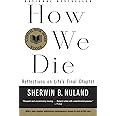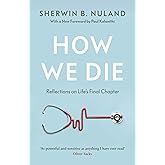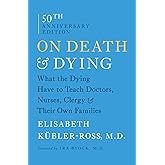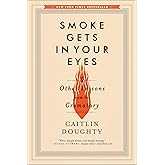
Amazon Prime Free Trial
FREE Delivery is available to Prime members. To join, select "Try Amazon Prime and start saving today with FREE Delivery" below the Add to Cart button and confirm your Prime free trial.
Amazon Prime members enjoy:- Cardmembers earn 5% Back at Amazon.com with a Prime Credit Card.
- Unlimited FREE Prime delivery
- Streaming of thousands of movies and TV shows with limited ads on Prime Video.
- A Kindle book to borrow for free each month - with no due dates
- Listen to over 2 million songs and hundreds of playlists
Important: Your credit card will NOT be charged when you start your free trial or if you cancel during the trial period. If you're happy with Amazon Prime, do nothing. At the end of the free trial, your membership will automatically upgrade to a monthly membership.
Buy new:
-34% $13.28$13.28
Ships from: Amazon.com Sold by: Amazon.com
Save with Used - Good
$7.94$7.94
Ships from: Amazon Sold by: GREENWORLD BOOKS

Download the free Kindle app and start reading Kindle books instantly on your smartphone, tablet, or computer - no Kindle device required.
Read instantly on your browser with Kindle for Web.
Using your mobile phone camera - scan the code below and download the Kindle app.



 Audible sample
Audible sample Follow the author
OK
How We Die: Reflections on Life's Final Chapter, New Edition (National Book Award Winner) Paperback – January 15, 1995

Explore your book, then jump right back to where you left off with Page Flip.
View high quality images that let you zoom in to take a closer look.
Enjoy features only possible in digital – start reading right away, carry your library with you, adjust the font, create shareable notes and highlights, and more.
Discover additional details about the events, people, and places in your book, with Wikipedia integration.
Purchase options and add-ons
NATIONAL BOOK AWARD WINNER • NATIONAL BESTSELLER • The definitive resource on perhaps the single most universal human concern: death.
Even more relevant than when it was first published, this edition addresses contemporary issues in end-of-life care and includes an all-embracing and incisive afterword that examines the state of health care and our relationship with life as it approaches its terminus. How We Die also discusses how we can take control of our own final days and those of our loved ones.
"Nuland's work acknowledges, with unmatched clarity, the harsh realities of how life departs… There is compassion, and often wisdom, in every page." —San Francisco Examiner
- Print length278 pages
- LanguageEnglish
- PublisherVintage
- Publication dateJanuary 15, 1995
- Dimensions5.2 x 0.7 x 8 inches
- ISBN-100679742441
- ISBN-13978-0679742449
Book recommendations, author interviews, editors' picks, and more. Read it now.
Frequently bought together

Similar items that ship from close to you
Editorial Reviews
From Publishers Weekly
Copyright 1994 Reed Business Information, Inc.
Review
"Eloquent and uncommonly moving… Nuland writes with unsentimental passion." —Time
"Engrossing… We are in the hands of a remarkable portraitist whose cultivated thought…. quietly and informatively instructs and advises us on a subject of universal concern." —The New York Times Book Review
"Nuland's work acknowledges, with unmatched clarity, the harsh realities of how life departs… There is compassion, and often wisdom, in every page." —San Francisco Examiner
"Nuland combines the clinical eye of a physician with… emotional and philosophical reflectiveness." —Newsday
From the Inside Flap
"It's impossible to read How We Die without realizing how earnestly we have avoided this most unavoidable of subjects, how we have protected ourselves by building a cultural wall of myths and lies. I don't know of any writer or scientist who has shown us the face of death as clearly, honestly and compassionately as Sherwin Nuland does here."--James Gleick
From the Back Cover
"It's impossible to read How We Die without realizing how earnestly we have avoided this most unavoidable of subjects, how we have protected ourselves by building a cultural wall of myths and lies. I don't know of any writer or scientist who has shown us the face of death as clearly, honestly and compassionately as Sherwin Nuland does here."--James Gleick
About the Author
Product details
- Publisher : Vintage; First Edition (January 15, 1995)
- Language : English
- Paperback : 278 pages
- ISBN-10 : 0679742441
- ISBN-13 : 978-0679742449
- Item Weight : 2.31 pounds
- Dimensions : 5.2 x 0.7 x 8 inches
- Best Sellers Rank: #40,775 in Books (See Top 100 in Books)
- #55 in Death
- #89 in Anatomy (Books)
- #131 in Grief & Bereavement
- Customer Reviews:
About the author

Sherwin B. Nuland is Clinical Professor of Surgery at Yale University School of Medicine and a Fellow at Yale's Institute for Social and Policy Studies. He is the author of over ten books, including the National Book Award-winning, HOW WE DIE: Reflections on Life's Final Chapter, an inquiry into the causes and modes of death that spent 34 weeks on the New York Times best-seller list. In addition he is a contributor to leading publications including the New Yorker, the New Republic, and the New York Review of Books.
Customer reviews
Customer Reviews, including Product Star Ratings help customers to learn more about the product and decide whether it is the right product for them.
To calculate the overall star rating and percentage breakdown by star, we don’t use a simple average. Instead, our system considers things like how recent a review is and if the reviewer bought the item on Amazon. It also analyzed reviews to verify trustworthiness.
Learn more how customers reviews work on AmazonCustomers say
Customers find the book understandable and interesting. They find the writing style honest, compassionate, and engaging. However, opinions differ on the pacing - some find it compelling and informative, while others feel it's depressing or grim.
AI-generated from the text of customer reviews
Customers find the book easy to read and understandable. They say it helps demystify the process and provides a range of issues. The author has an advanced vocabulary and writes beautifully.
"The language is superb! Dr. Nuland writes about the scientific medical truths in such an artistic and beautiful language...." Read more
"...This book has helped. It has brought some of the wisdom I was seeking and I am happy to have bought it...." Read more
"...Nuland has an advanced vocabulary and is an eloquent and engaging writer; however, when he dives into medical concepts his prose is often too..." Read more
"Love this book, and love how the author wrote from his heart...." Read more
Customers find the book insightful, informative, and authoritative on the dying process. They say it answers many questions and provides a necessary reality check. The book discusses a range of issues we face both living and dying. It makes them reflect on life and helps them grow emotionally.
"...He makes the facts of death so real and natural that it takes the fear of death out of us; it becomes quite acceptable...." Read more
"...and I am happy living my life, having the comfort that it is a meaningful life and one I am happy to be living...." Read more
"This book is an invaluable guide to deciding on how to care for we love as they approach death, and to thinking about (and planning for) our own..." Read more
"...in detailing some of the ways most people tend to die, which is good information for anyone unaware of what actually is likely to happen...." Read more
Customers find the book written with compassion and warmth. They appreciate the author's candid, honest, and engaging writing style. The narration of the author's life is outstanding, not restricted although focused on dying. Readers describe the author as an inspired, poetic, well-spoken writer whose views on the subject of death and how we treat the dying are profound and insightful.
"...His language really is beautiful. The way death consumes each and every one of us, whether we are healthy or sick, is so fascinatingly put...." Read more
"...Nuland has an advanced vocabulary and is an eloquent and engaging writer; however, when he dives into medical concepts his prose is often too..." Read more
"Love this book, and love how the author wrote from his heart...." Read more
"...frank, professionalism that lurks there, and the full panoply of empathy and human feeling...." Read more
Customers have mixed views on the pacing of the book. Some find it compelling and interesting from beginning to end, while others find it depressing, grim, and not optimistic.
"...a long slow process of suffering and dying, is just depressing and unsettling...." Read more
"...world, this book (which is a nonfiction-medicine) is never boring from beginning to the end...." Read more
"Naturally, the book is a little depressing because of the subject matter, and Nuland doesn't dress death up in any easy-to-wear fashion or in any..." Read more
"...first read it back in the 1980's, and found it both fascinating and frightening...." Read more
Top reviews from the United States
There was a problem filtering reviews right now. Please try again later.
- Reviewed in the United States on November 8, 2008The language is superb! Dr. Nuland writes about the scientific medical truths in such an artistic and beautiful language. I like the way he starts off a serious subject with such drama and fiction (so it seems); but then tapers it to the serious facts of life. He draws us from a fiction to nonfiction with interest and enthusiasm. He makes the facts of death so real and natural that it takes the fear of death out of us; it becomes quite acceptable.
His language really is beautiful. The way death consumes each and every one of us, whether we are healthy or sick, is so fascinatingly put. He has explained how he saw his grandmother pass away; this has shed a lot of light on the facts about death for me. The analogy with which he described the cancer cell to young unruly adolescent has a touch of humor and at the same time describes the truth about the malignant cells. It is so beautifully written. For someone who is not a doctor or someone who is more a dreamer in the fiction world, this book (which is a nonfiction-medicine) is never boring from beginning to the end. He has caught my attention from the beginning to the end. His language captivated my attention; I have never read a nonfiction book with such enthusiasm and interest before. I am able to face the facts of death more logically now. This book was an excellent read.
I would recommend this book to anyone who wants to accept death as a natural phenomenon and to make peace with yourself and with your loved ones at the time of death.
- Reviewed in the United States on January 20, 2018As a cancer patient that may be beyond repair, I am looking to understand death and understand life, and make sense of the situation in a way that I can live my life happily and know how to make the most of a time that will most likely be far less than I expected. This book has helped. It has brought some of the wisdom I was seeking and I am happy to have bought it. I am leading my life in a way that I’m not very concerned about death and I am happy living my life, having the comfort that it is a meaningful life and one I am happy to be living. Some run into religions, but to me a religion isn’t a solution, it’s more like an ostrich putting its head into a hole to avoid seeing the lion running to eat it. Religions promise eternal life and people believe it even though it makes absolutely no sense at all. Said this, the author does not have a problem with religion. I do! I recommend the book, you don’t have to be close to dying to make good use of these ideas, they’re good for anybody, as we all are mortals and it’s always good to stay ahead of death and not regret that we didn’t say or do something if we or a loved one dies. I used to be anxious and fearful before cancer returned. Now that it came back I am relaxed and not very, very worried.
- Reviewed in the United States on August 24, 2024Nuland's _How We Die_ communicates to a general audience that death will be unpleasant; there most likely will be pain, suffering, and loss of dignity. He illustrates with descriptions of the dying process from the major causes.
Nuland’s second theme, which seems to address peers in the medical industry, is that modern physicians can be overly consumed with solving what he calls “The Riddle” – the technical challenge of defeating a disease – and overlook whether the treatment negatively affects the remaining quality of life and is in the best interest of the patient. After my own career in information technology, I can readily identify.
_How We Die_ was originally published in 1994 and this updated version in 2010, so it is obviously a dated text given that healthcare is a very fast-moving technology-driven field. Yet it does not feel antiquated to this reader.
Nuland has an advanced vocabulary and is an eloquent and engaging writer; however, when he dives into medical concepts his prose is often too technical for the layperson. While slightly frustrating, it does not prevent me from strongly recommending _How We Die_ and wanting to read his other works.
- Reviewed in the United States on August 17, 2015This book is an invaluable guide to deciding on how to care for we love as they approach death, and to thinking about (and planning for) our own deaths. I first read it back in the 1980's, and found it both fascinating and frightening. Dr. Nuland illustrated very clearly that most of us are unlikely to go gentle into that good night, and discussed very movingly how that fact conditions the choices we will have to make . At the time, however, this did not seem terribly relevant to me -- I was, after all, just moving into middle age. . Now, however, I am over 70, and it is an extraordinarily relevant book. Last month, I reread it in the revised edition, as a dear friend for whom I have been responsible came to the end of her life. I only wish that I had read it earlier in this process. What Dr. Nuland said in the 1980's, and again in the 1990's, is still true. All too often, the American medical system still doesn't recognize that some illnesses cannot be cured. A dying patient may be subjected to procedure after procedure, and treatment after treatment, in a vain effort to avoid the inevitable. Hospice may not be called in until the very end, because the doctors and the patient and the patient's family are still focussed on treating the illness rather than the patient. The result is pain, discomfort and disorientation that might have been avoided. Had I realized just how entrenched this bias still is, I would have insisted that chemotherapy be cut off sooner than it was, and that my friend go on hospice sooner than she did. For the future, this book -- and my recent experience -- convince me that if I am diagnosed with a cancer that is likely to kill me, I will enlist a palliative care doctor on my medical team from the start. I only hope that I will find one with a fraction of Dr. Nuland's empathy and understanding.
Top reviews from other countries
 zmReviewed in France on October 24, 2022
zmReviewed in France on October 24, 20225.0 out of 5 stars very nice
great book to read!
-
 A. QuijanoReviewed in Spain on September 28, 2022
A. QuijanoReviewed in Spain on September 28, 20225.0 out of 5 stars Eatupendo
Me ha gustado como presenta la dura
cuestión. Es muy constructivo.
 Barun RayReviewed in India on April 17, 2019
Barun RayReviewed in India on April 17, 20195.0 out of 5 stars Mitigate the inevitable, Death
Shakespeare reflects through Julius Caesar.
"Of all the wonders that I yet have heard,
It seems to me most strange that men should fear;
Seeing that death, a necessary end,
Will come when it will come."
We are all fearful of death. It comes. It comes when it should. But the passage through which it comes makes all the difference. It may come upon us so suddenly that we may not even get to be surprised. It may also come upon us in a prolonged deliberate fashion devastating us and our loved ones so much that it robs even the last vestiges of dignity. How it comes we have no control. But we can, definitely have some control over our acceptance to it. We can also have some control, at least some semblance of control, of how we react to it when it comes.
In his award-winning book How We Die, medical practitioner and surgeon Sherwin B. Nuland, he died in 2014 in the age of 84, talks about the choices we have during our life and when we die. During later period of our life, when chances of suffering due to some terminal disease increases many folds, its burden robs us of our decision-making faculties and we end up being a pawn in the hands of modern medicine practitioners.
Modern medicine, since the invention of Small Pox vaccine and penicillin have travelled a long distance, so much so, that it almost verges towards realm of science fiction. But in the process, it has robbed itself of the compassion that was the hall mark of medicine practitioners during previous centuries. Mr. Nuland knows what he is talking about. He was representative of that generation which witnessed the shift from hi compassion to hi dependence of technology in the practice of medicine. Modern practitioners of medicine are more of, what Nuland calls, a riddle solver than a care giver. This does not mean they do not care about the patients they treat. Far from it. In the process of focusing for the cure of the disease most often they forget the person for whom care is given. The focus, lamentably, shifts from the patient to the disease.
A time comes when one, as patient or as the loved one of the patients, must take a decision however hard it is. It is not about life as opposed to death, but about quality of life and knowing when to let go and face the inevitable. This choice can only be taken when the patient and her loved ones are aware of all the options and eventualities.
To quote the author “ …. Treatment decisions are sometimes made near the end of life that propel a dying person willy-nilly into a series of worsening miseries from which there is no extraction – surgery of questionable benefit and high complication rate, chemotherapy with severe side effects and uncertain response, and prolonged periods of intensive care beyond the point of futility. Better to know what dying is like, and better to make choices that are most likely to avert the worst of it. What cannot be averted can usually at least be mitigated.”
This book is important because it enlighten us of the situation that we as individual or as family must go through and gives us the right perspective so to deal with the inevitable that is death.
 oakromuloReviewed in Brazil on February 12, 2017
oakromuloReviewed in Brazil on February 12, 20175.0 out of 5 stars Brilliant, just brilliant. A must-read for any human being.
A life-changer (or should I say death changer) for anyone that ever wondered how do we cease to exist. The truth is as blunt as blunt can be and keeps your death expectations at bay.
 Izzy FitzgeraldReviewed in the United Kingdom on March 26, 2017
Izzy FitzgeraldReviewed in the United Kingdom on March 26, 20175.0 out of 5 stars it has not been an easy process grieving for him but if I hadn't read ...
This book helped me recognize my fathers illness for what it truly was I read it two months before he died, it has not been an easy process grieving for him but if I hadn't read this book before hand I would still be in denial of what I couldn't control. It helped me let go at the right moment. He died of Heart Failure an illness that he had most of his life but he made it past his 80's which is a blessing. It is not an easy book to read as it makes you face truths but in a very gentle way. My father had a drop in his oxygen count a month before he actually passed away and it is from reading this book I knew what was happening and I was able to prepare myself, it didn't make it easier but it did help me understand what was happening. Be brave and have courage when you read this book, death affects us all, if anything this book allows you to prepare and make the best use of your time, for yourself and for those around you with terminal illness.















